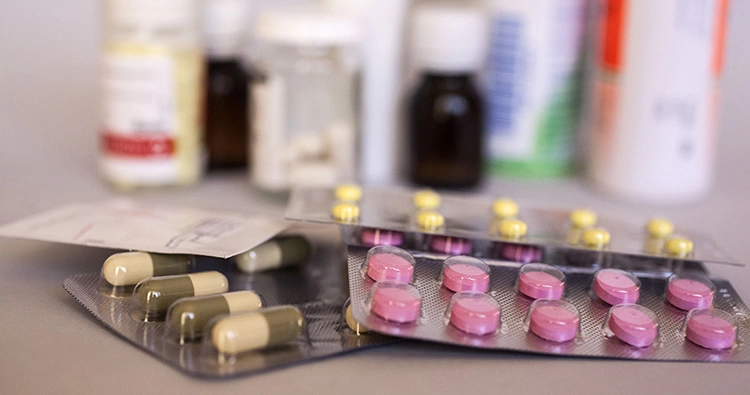
When it comes to healthcare, the cost of medications is a significant concern for many individuals worldwide. In the country of Georgia, located in the Caucasus region, drug prices have been a topic of discussion and concern for both the government and its citizens. This article aims to provide a comprehensive overview of drug prices in Georgia, exploring the factors that influence pricing, the current state of the pharmaceutical market, and the efforts being made to ensure access to affordable medications.
Factors Influencing Drug Prices in Georgia
Several factors contribute to the pricing of drugs in Georgia, including:
1. Economic conditions: Georgia's economic situation plays a crucial role in determining drug prices. As a developing nation, Georgia faces challenges in terms of GDP growth, inflation, and purchasing power, which can impact the affordability of medications.
2. Regulatory framework: The Georgian government's policies and regulations regarding the pharmaceutical industry, such as drug registration, pricing controls, and import tariffs, can significantly influence drug prices.
3. Competition: The level of competition among pharmaceutical companies in Georgia can affect drug prices. A lack of competition may lead to higher prices, while the presence of multiple manufacturers can drive prices down.
4. Patent protection: The existence of patents on certain medications can grant market exclusivity to pharmaceutical companies, allowing them to set higher prices for those drugs.
5. Exchange rates: Fluctuations in currency exchange rates can impact the cost of imported drugs, as many medications in Georgia are sourced from foreign manufacturers.
Current State of the Pharmaceutical Market in Georgia
The pharmaceutical market in Georgia has undergone significant changes in recent years. According to a report by the European Union-Georgia Business Council, the Georgian pharmaceutical market was valued at approximately $400 million in 2020, with a projected annual growth rate of 5-7% in the coming years.
The market is characterized by a mix of local and international pharmaceutical companies, with a growing presence of generic drug manufacturers. Generic drugs, which are bioequivalent to brand-name medications, often offer more affordable options for patients.
In terms of drug pricing, Georgia has implemented a reference pricing system, which sets maximum retail prices for certain essential medications based on prices in reference countries. This system aims to ensure the affordability of critical drugs while still allowing market competition.
Efforts to Ensure Access to Affordable Medications
The Georgian government has recognized the importance of ensuring access to affordable medications for its citizens. Several initiatives have been implemented to address this issue:
1. Universal Healthcare Program: In 2013, Georgia introduced the Universal Healthcare Program, which provides coverage for essential medical services, including certain medications, to all citizens.
2. Price regulation: The Georgian government has established a pricing committee responsible for setting maximum retail prices for essential drugs, based on the reference pricing system.
3. Promotion of generic drugs: The government has encouraged the use of generic medications by streamlining the registration process for generic drugs and promoting their benefits to healthcare providers and patients.
4. International cooperation: Georgia has engaged in bilateral and multilateral agreements with other countries to facilitate the import of affordable medications and to share best practices in drug pricing policies.
Challenges and Future Prospects
Despite the efforts being made to ensure access to affordable medications, Georgia still faces challenges in terms of drug pricing and accessibility. Some of these challenges include:
1. Limited budget for healthcare: As a developing nation, Georgia's healthcare budget is constrained, which can limit the government's ability to subsidize medications for its citizens.
2. Out-of-pocket expenses: Many Georgians still face significant out-of-pocket expenses for medications, particularly for those not covered under the Universal Healthcare Program.
3. Quality concerns: Ensuring the quality and safety of medications, particularly generic drugs, remains a challenge in Georgia, as in many other countries.
4. Balancing innovation and affordability: Encouraging pharmaceutical innovation while maintaining affordable prices is an ongoing challenge for policymakers in Georgia.
Looking to the future, Georgia must continue to refine its drug pricing policies, strengthen its regulatory framework, and explore innovative solutions to ensure access to affordable, high-quality medications for all its citizens. This may involve further international cooperation, investment in local pharmaceutical manufacturing, and the promotion of rational drug use among healthcare providers and patients.
Conclusion
Medikamentebi Drug prices in Georgia are influenced by a complex interplay of economic, regulatory, and market factors. While the government has taken steps to ensure access to affordable medications through initiatives like the Universal Healthcare Program and price regulation, challenges remain in terms of out-of-pocket expenses, quality concerns, and balancing innovation with affordability.
As Georgia continues to develop its healthcare system and pharmaceutical industry, it will be crucial to prioritize the needs of patients and to work towards a sustainable, equitable model for drug pricing. By addressing these challenges and leveraging opportunities for growth and collaboration, Georgia can make significant strides in ensuring access to affordable, high-quality medications for all its citizens.